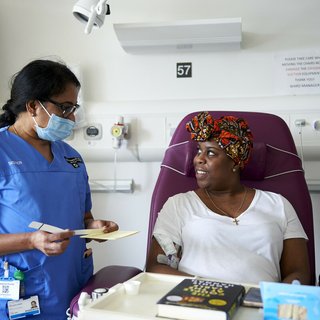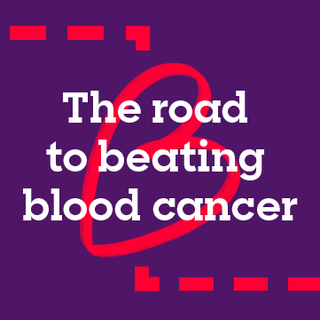Drug for the blood cancer, myeloma, recommended for use on NHS
Today (Monday 22 April), the National Institute of Health and Care Excellence has published final draft guidance, recommending the drug, selinexor for people with the blood cancer, myeloma who have not responded to previous treatments.

Myeloma is a form of blood cancer that affects white blood cells called plasma cells. While most people diagnosed with myeloma are men, and most are over 70, people can be much younger when they are diagnosed.
The specifics of the final draft guidance, mean that the drug selinexor is recommended for use in combination with the drugs, bortezomib and a low-dose of dexamethasone in adults if they have had one previous line of treatment, and their condition has not responded to daratumumab and lenalidomide. It is also available to people who have had two previous lines of treatment and their condition has not responded to lenalidomide.
What our expert says
“Myeloma, is a form of blood cancer, which while currently incurable, can be treated. In the last two decades, we’ve seen the treatment landscape for myeloma change completely, now it's normal to see someone achieving complete remission from their disease following initial treatment although their cancer will eventually return. But blood cancer is the fifth most common cancer in the UK and still around 4,500 develop myeloma every year. Developing new types of treatment is important so we can treat those who don’t respond to other treatments.
It’s good news that a new drug class that can be taken orally in combination with other treatments"
- Gemma Trout, Blood Cancer UK nurse
The drug, selinexor, (Nexpovio) is made by Menarini Stemline and is the first in a new class of drugs called SINE (selective inhibitor of nuclear export) compounds. It works by blocking the movement of particular proteins inside cells, which stop myeloma cells from multiplying.
Menarini Stemline think that over 1,000 people may be eligible for the treatment.
Interim funding for selinexor will be available immediately on the Cancer Drugs Fund until NICE publishes its final guidance. The Cancer Drugs Fund, hit a major milestone in April when the 100,000th patient received medication as a result of the fund.
The benefit of the Cancer Drugs Fund
Senior Support Nurse Gemma Trout said:
“This decision also demonstrates the benefit of NHS England’s Cancer Drugs Fund, which will allow people to access this drug before NICE gives final guidance.”



